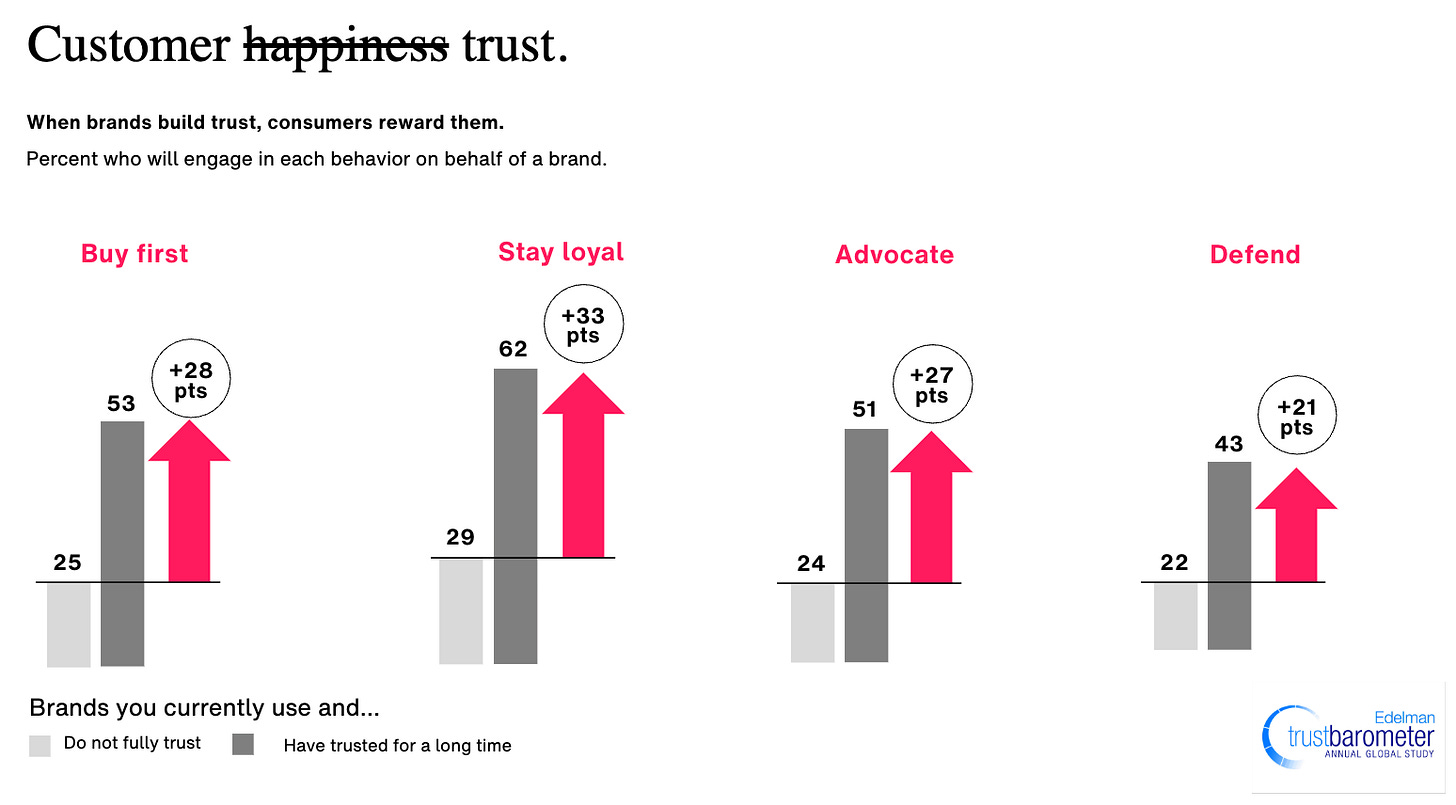In the age of tech, human connection is still the most important metric.
Why "being cool" might be the best path to stronger client relationships.
A couple of weeks ago, I put together a presentation for a group of business leaders in London. The talk centered on how to build stronger relationships with customers. Over the course of 30 minutes I walked through a number of frameworks and studies that helped structure a process for professional relationship management while quantifying the importance of such an initiative.
At the end, my friend and colleague Charles raised his hand and perfectly distilled my talk in three simple lessons (he could have saved me so much time!).
Connection. At all levels.
Cadence. Setting and keeping expectations.
“Being cool.” Be someone that people want to be in a relationship with.
Charles, as per usual, articulated the concept more effectively. The third lesson in particular is the most important one, and though it might be the hardest to measure, it has proven to be single biggest hack I’ve found throughout my career at getting close to customers/partners, understanding their businesses, and uncovering ways to work better together.
Of course, by “cool” I don’t mean in the traditional sense. Anyone who knows me knows I am far from cool, as I wear mainly clothes I’ve acquired for free at conferences or in men’s recreation basketball leagues, listen exclusively to Dua Lipa (note: Dua Lipa is cool, but only listening to her is probably not), and have watched every Hallmark Holiday movie at least three times. No, in this case, being “cool” is meant more as a synonym of being “real,” or “honest.”
Trust as a “key performance indicator.”
As complex and as digital and as technical as most industries have become in 2025, there is a simple truth that still governs success: people buy from people. This is true in business-to-consumer and business-to-business environments, alike. As I wrote recently, I have probably learned more about business from producing comedy shows than I have from academic and professional environments. One of my favorite quotes about comedy is, “the job of the comedian is to lead an interesting life and share it with others on stage.” Sadly, I can’t recall or find the attribution for it, but I think about it often.
This is another way to frame the concept of relationship-building. Being both interesting and interested. That is, can you connect with people across a wide spectrum of personalities and perspectives? Do you have organic topics to discuss that expand beyond the scope of your particular service offering? And perhaps most importantly, do you care about your customer and the challenges they’re facing?
People buy from people, and unsurprisingly, people are pretty good at reading each other. When we treat a relationship as purely transactional, or feign interest in our counterpart with a hidden agenda, it is really hard to build a genuine connection.
In today’s economy, where attention is harder to maintain, many companies are trying to double and triple-down investment on existing customers, and with good reason. According to Forrester, 73% of B2B revenue comes from existing customers. In this same forum in London, the conversation turned to how we can measure relationship success.
Some suggested tracking “customer happiness,” which is certainly a direction used by some organizations through net-promoter scores, etc. Still, I’m not sure happiness is the best way to measure the strength of a relationship. Think about your own interpersonal relationships. Especially with the people closest to you - your spouse, or siblings, your best friends - you’re not always happy with them. To me, a better metric would be trust. Even in strong relationships, we’re going to mess up sometimes. We can’t always control customer happiness, because we might need to raise our prices, or explain a technical down-time, etc. But we can control trust. Trust is not delivered as a moment in time, it’s built through a series of actions and maintained actively through our behaviors within our relationships.
Consider this data from the Edelman Trust Barometer, which demonstrates the value of consumer trust in driving commercial success. Consumers report that for brands they’ve trusted for a long time, they are far more likely to buy first from, stay loyal to, advocate for, and importantly, defend the brand (when there is inevitable strife).
The old saying goes, it takes a lifetime to build trust and just a moment to break it. In whatever business you operate in, from financial, to tech, to the arts, it is a good time to take stock of the strength of your relationships.
Do you customers/partners/colleagues trust you? Do you trust them? It is easy to overlook the importance of getting the simple things right when times are good and money is flowing. But when the headwinds reach us, we will need to rely on the strength of our relationships to navigate through.
What do you do to create trust in your work? I’d love to know.
Photo by Matt Bennett on Unsplash.



